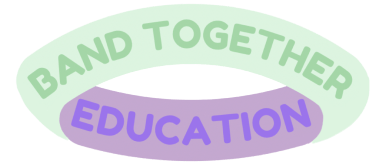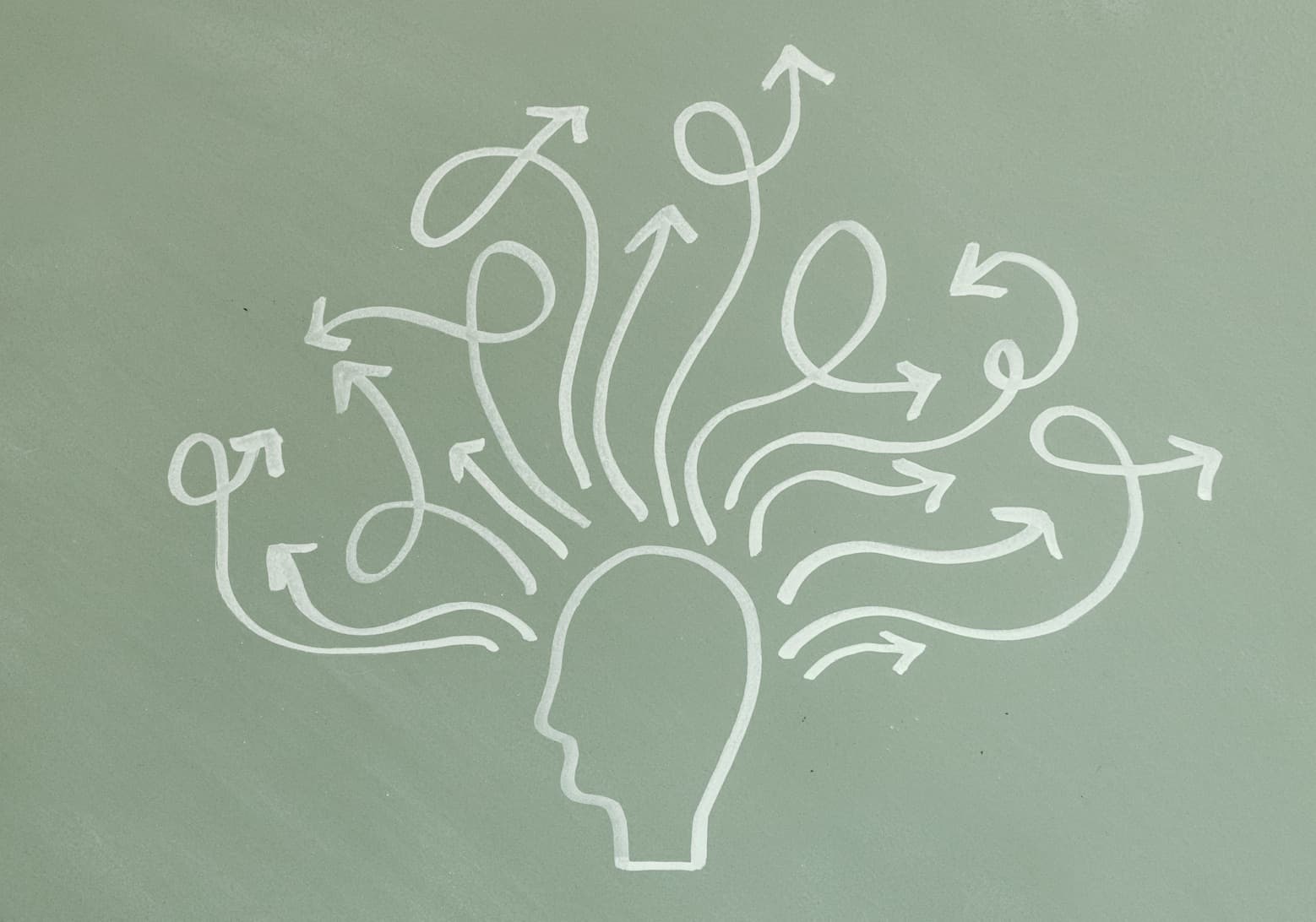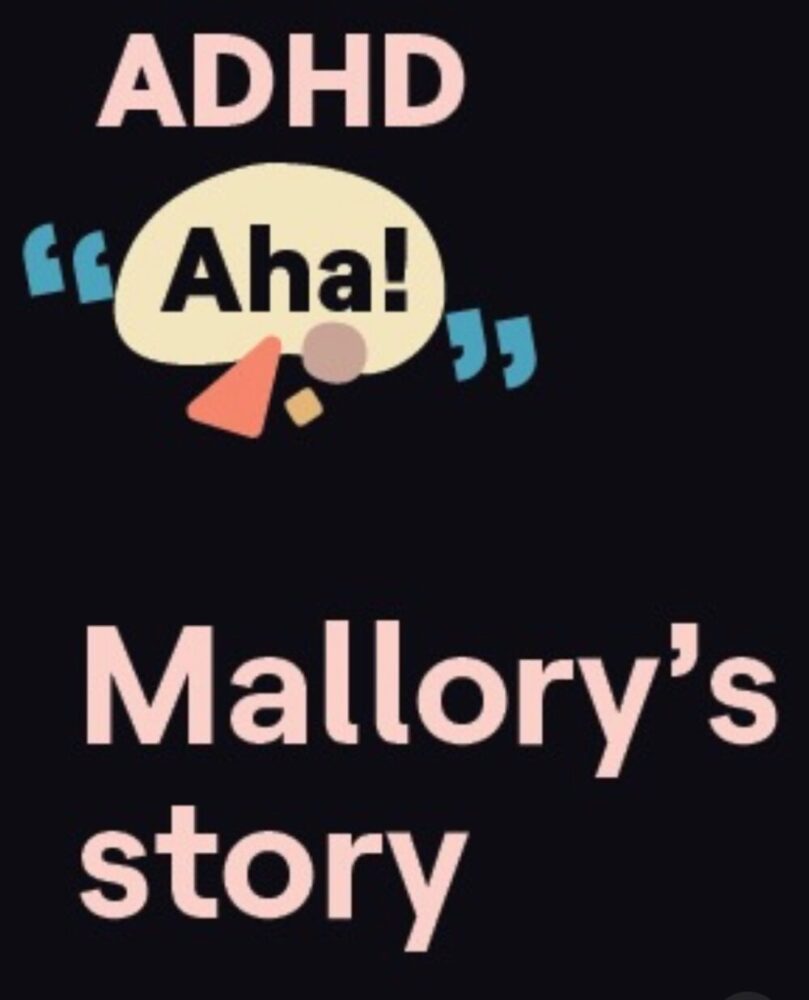Anxiety People say that opposites attract, but what happens when two highly emotionally intelligent, sensitive people meet and discover that despite their upbringings being drastically different, their learning profiles are eerily similar? Keep reading to find out.
Andrew:
My parents divorced when I was three, which made me feel confused. I was the only one in my friend group who had divorced parents. I still grew up with two loving biological parents, as well as a stepdad and a stepmom, a brother, a half-brother, and two stepsiblings.
I have always had severe anxiety. I started going to therapy when I was elementary school and on and off throughout my life, although my anxiety pivoted away from my childhood issues and is now all-encompassing.
Mallory:
I am the youngest of three children. Each of my brothers, just like me, were diagnosed with ADHD at an early age. My mom was a special educator for over thirty years and my dad is a psychiatrist.
I started medication for ADHD and anxiety when I was eight. This didn’t feel weird to me because my brothers were traversing through similar experiences, so that was all that I know. I learned that some things were harder for me.
Andrew:
I grew up in the Maryland public school system in the 1990s and 2000s. There wasn’t much information readily available to families about anxiety and learning disabilities. I have a processing disorder and difficulty with word retrieval. I was in and out of special education during elementary school, while I transitioned into mainstream from fourth until the beginning of high school. In high school, I was in the regular classroom, and attended a resource class.
When I was pulled out of the mainstream classroom, I was in a mixed-age special education program. I flew under the radar because I was quite and well-behaved. I struggled greatly in high school. Many students in my program had emotional disturbances, so I felt like I missed out on a large portion of my education during this time. I learned that I had to work harder than everyone else.
Mallory:
I began private school in third grade. I benefitted from being in a small class setting. From a young age, my anxiety and combined-type ADHD were intense. Everything was urgent. This is something I am still trying to course-correct today. I would put on a persona at school, demonstrating a calm and put together being, but when I got home, everything unraveled. I threw tantrums if I couldn’t complete or understand a concept instantaneously.
Our Understanding of Each Other
In 2014, we connected online, and it didn’t take us a long time to realize why we matched. We are intuitive, self-aware individuals, who are sensitive and emotionally intelligent people. As we got to know each other better over time, we had to find ways to support each other.
.
Here are 5 things we’ve learned and practice daily that help us strengthen our relationship:
.
- Practice Empathy
As individuals who struggle with accepting feedback from others and who take things personally, practicing empathy is essential. It’s easy to get wrapped up in your own worries that you want to discount your partner’s needs because yours seem more urgent. Because we both understand the complexities of living with deeply rooted anxiety, we practice actively listening to each other’s needs. We draw from our own experiences with anxiety and transfer it into a healthy practice of supporting each other in a gentle, yet tough love kind of way.
. - Lean Into the Discomfort
This year has been filled with challenges for which neither of us planned. We begin to realize that life does not stop, and things keep on pilling up, disrupting your plans and routines. We are rigid individuals, who benefit from a consistent routine. Through our personal hardships, we have discovered that we must relinquish control in the situations in which holding on no longer serves us. It’s easy to use each other as punching bags, but it’s important to remember that we are on the same team, who can overcome anything. We are getting more comfortable at being uncomfortable, together.
. - Recognize That We Have Different Strengths
When Mallory’s short fuse blows, Andrew knows how to remain calm and shift her thoughts to something that she can control. When Andrew gets anxious with work, Mallory uses a tough-love approach and encourages Andrew to rely on his past successes to work through his current challenge. They are learning how to take advantage of each other’s strengths to support each other.
. - Ask For What You Need
We both used to be uncomfortable asking for help, but the older we get, the more we understand the importance of asking each other for what we need. When we assume the other person knows what we want or need, things don’t end well. We are working on being more explicit and comfortable asking for what we need. Saying “I don’t want advice; I just want to vent and want you to listen” is helpful. Don’t be afraid to ask for what you need, because otherwise you might not get it.
. - Share What You’re Proud Of
Make time and room to express your gratitude for the other person. Andrew writes post-it notes to Mallory each morning, expressing his love and awe for her accomplishments at work. Mallory edits Andrew’s work emails and comments on his growth and confidence in his profession. We share what we’re proud of on a personal level, working on growing our own confidence levels, so we can continue to support each other, as a team.
.
Despite our upbringings, we have begun to realize that we are similar. Everyone deserves to live a life where you are valued, loved, and supported. It’s challenging living with ADHD and anxiety and supporting a partner who struggles with similar difficulties, but understanding each other’s needs is a powerful first step.




